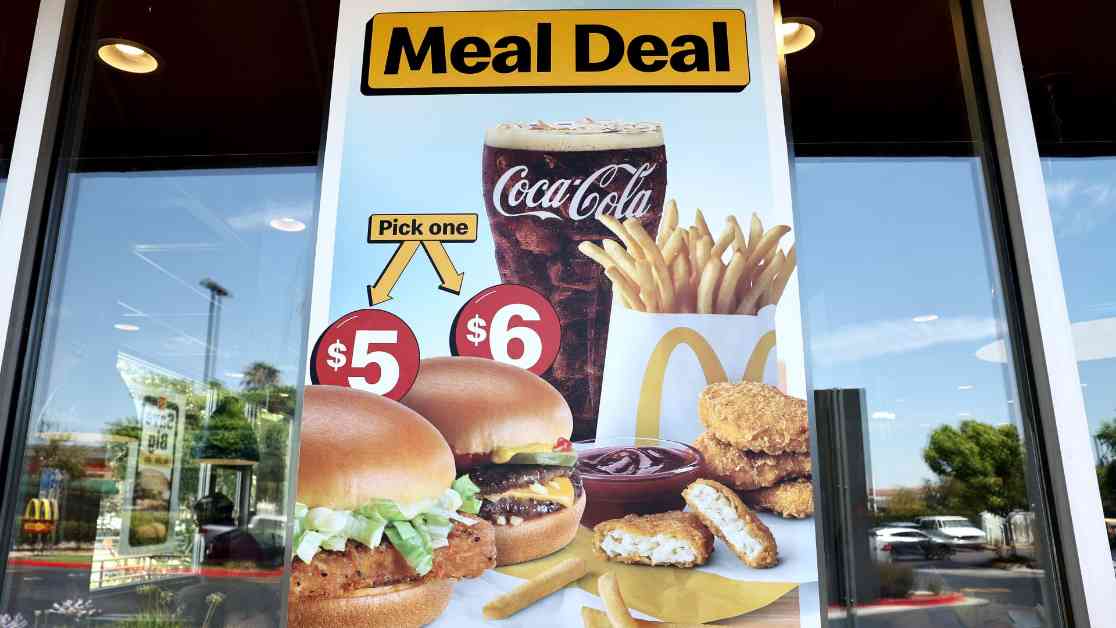Fast-food chains are competing for low-income diners this summer by offering $5 value meals in hopes of boosting traffic and sales. In recent years, consumers have cut back on fast-food spending due to rising menu prices, leading many chains to struggle with declining sales. To combat this trend, companies like McDonald’s, Taco Bell, Burger King, and Wendy’s have introduced $5 meal deals to attract customers.
Despite the ongoing economic downturn, fast-food chains have historically fared better than other sectors during tough times. However, recent price hikes have deterred customers, particularly those in the low-income bracket. To address this issue, some casual-dining chains have highlighted their value compared to fast food in an effort to gain market share.
Investors are keeping a close eye on how these promotions will impact second-quarter earnings for major fast-food companies. Shares of McDonald’s, Burger King, Wendy’s, and Yum Brands have seen declines this year, reflecting concerns about consumer behavior and sales performance.
Value meals are not just about driving traffic; they also aim to encourage customers to make additional purchases, such as drinks or desserts, to boost profits. However, if customers only stick to the discounted meal, it could hurt the bottom line in the long run. Franchisees are also cautious about the impact of these promotions on their profitability.
Despite some skepticism, initial data suggests that the $5 meal deals have been successful at bringing customers back to restaurants. McDonald’s, in particular, has seen an increase in foot traffic since launching its promotion. Other chains like Buffalo Wild Wings, Starbucks, and Chili’s have also benefited from discounts in driving traffic.
While the $5 meal deals may not be significant sales drivers, they are effective in retaining customers and preventing them from going to competitors. Franchisees and investors are closely monitoring the impact of these promotions on overall sales and profitability in the coming quarters.
















